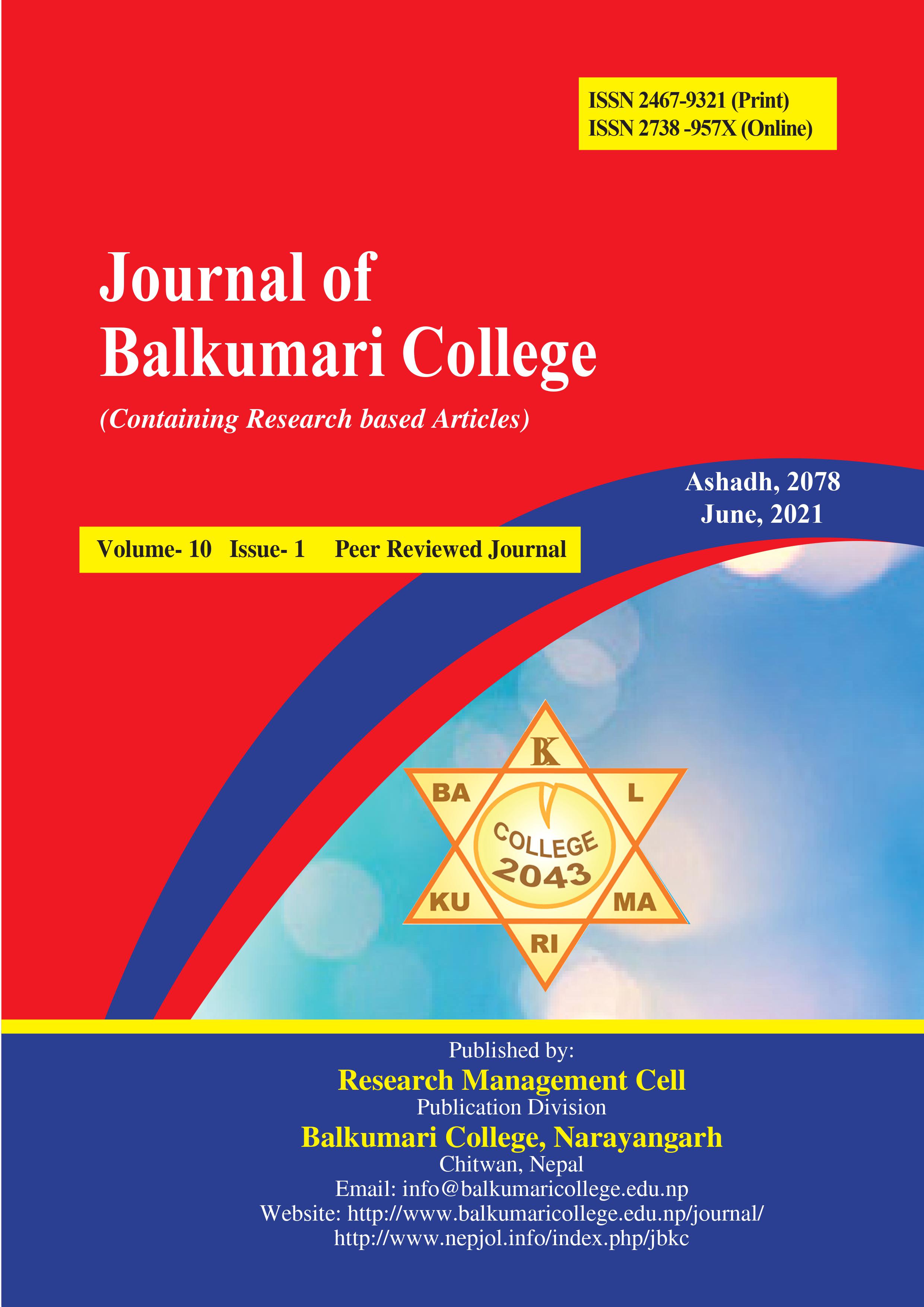Nutritional Status And Its Impact On The Occurance Of Complications In Children With Acute Lymbhoblastic Leukemia During 1Stinduction Chemotherapy: The Experience At Bp Koirala Memorial Cancer Hospital
DOI:
https://doi.org/10.3126/jbkc.v10i1.42124Keywords:
Malnutrition, Acute Lymphoblastic Leukemia, Induction Chemotherapy, ProblemsAbstract
Malnutrition is a common problem in cancer patients. It has been recognized as an important component to influence on tolerance to treatment, increased morbidity, poor prognosis, decreased quality of life and increased health care costs. Acute leukemia is the most common malignancy in children of which acute lymphoblastic leukemia accounts for majority of the cases (75%). Chemotherapy is the main treatment modality for acute lymphoblastic leukemia(ALL). Under nutrition can contribute to the incidence and severity of treatment side effects and increases the risk of infection, thereby reducing the chances of survival.
Objectives: To evaluate pretreatment nutritional status (BMI) in children with ALL and its effects during first induction chemotherapy.
Methodology: This observational study included sixty-two consecutive children with acute lymphoblastic leukemia, admitted in Haemato-Oncology Ward of BPKMCH over a period of 27 months (15thy May, 2015 to 15th July, 2017) were measured for height and weight to calculate BMI for assessing nutritional status at presentation. Children were grouped into 2 group: normal weight and underweight usingCDC BMI percentile chart by World Health Organization(WHO). Day to day observation and documentation were maintained to identify any side effects and complications over a period of first induction chemotherapy.
Findings of the study: Among 62 cases, majority were male (66%). Three forth of the cases were B-cell ALL. More than 34 percent of the cases (27) had under- weight (BMI< 5thpercentile). Effects like very severe neutropenia, febrile neutropenia, infections, musculoskeletal problems, severe pancytopenia, G/I problems were noted mostly in children with underweight.
Conclusion: Baseline nutritional status negatively influences in the occurrence of complications during induction chemotherapy in children with ALL. The nutritional support has to be personalized according to the nutritional status of the single patient.




